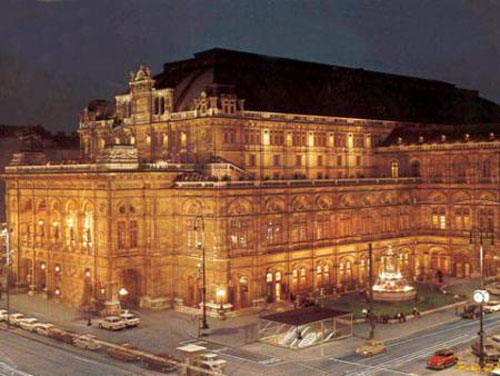On at Paris´ Opera Bastille until the 7th of June, is Mozart masterpiece The Weddings of Figaro, featuring some of the best soloists in the world, with Bárbara Fritoli playing Countess Almaviva, and Ekaterina Syurina playing Susanna.

The Weddings of Figaro is a great four act which was composed by Wolfgang Amadeus Mozart from the libretto by Italian poet Lorenzo da Ponte, who had been inspired by the comedy The Marriage of Figaro, by Pierre Agustín Caron de Beaumarchais. Mozart met da Ponte in the house of his first child´s godfather, the Baron of Wetzlar, and they started to put Beaumarchais´ satirical work to music. Da Ponte was an adventurer born in Venice, who had abandoned his religious upbringing to devote himself to literature, going on to hold the post of court playwright. His career working in the court hadn´t brought great success, so the project of adapting Beaumarchais was his great challenge.
The piece opened in Paris to a certain amount of suspicion, due to the fact it was inspired by a text written by somebody who served in the French Revolution, and who had written in a satirical style in order to reflect upon the power struggles of the decadent nobility.
Emperor Jose II opposed it being shown in Vienna, one of the most eminent places for opera at the time, as he considered it a bad omen, and too risky. Mozart and Da Ponte managed to convince him to show it, on the condition they made some amendments to the libretto, making it more socially acceptable. The fifth act was quickly deleted, and five characters omitted. Much of Beaumarchais´ social criticism was eliminated, and Mozart´s project became a kind of inoffensive and light-hearted comic opera. It was finally ready for release at Vienna´s Burgtheater theatre on the 1st of May, and was well received by the public, though it only lasted 9 performances.
Both the opera and Beaumarchais´ original work are based in the abuse of power amongst the nobility, and its treatment towards its subjects. Susanna and Figaro are preparing their wedding – but their master, Count Almaviva, isn´t prepared to give up Susanna. Susanna is the servant to the Countess, who is fed up with the constant infidelity of the Count. This jealousy, along with the tricks played by Figaro and Susanna lead to a series of intrigues, revealing the many conflicting passions of the characters. In the end, everyone turns out happy, like in a fairy-tale, along with trilling singing voices.
Despite the history of the censorship of Beaumarchais´ original work, The Weddings of Figaro is a wonderful opera, both for its theatricality, and music from one of the best composers of all time.
For more information http://www.operadeparis.fr/cns11/live/onp/Saison_2010_2011/Operas/spectacle.php?lang=en&event_id=1308&CNSACTION=SELECT_EVENT
 Nancy Guzman
Nancy Guzman
To experience this marvelous opera musical spectaular, head down to Opera Bastille if you are spending a few days renting apartments in Paris

 English
English Translated by: Poppy
Translated by: Poppy